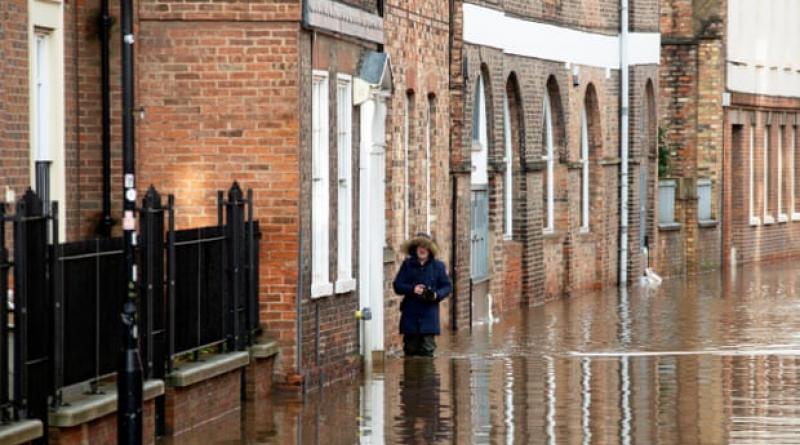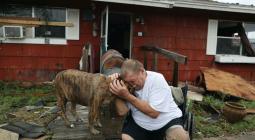Warning over mental health effects of floods in the UK

We must do more to combat effects of global heating on housing, says climate expert.
Substantial work still needs to be done to protect houses from flood damage and to ensure homes do not dangerously overheat in summer as climate change intensifies storms and heatwaves in the UK. That is the key message from one of the country’s leading experts on climate change adaptation.
Speaking on the eve of the Climate Adaptation Summit, which opens tomorrow in the Netherlands, Julia King told the Observer that although some improvements had been made to Britain’s preparations for dealing with global heating, some important protection was still lacking.
“We have to do more to make houses more resilient to flood waters and we also have to deal with the issue of properties becoming worryingly overheated in summer,” said King, who is a member of the UK Committee on Climate Change (CCC). “These issues need to be addressed as key priorities as global warming continues.”

King’s warning comes after many parts of the country were battling to recover from the devastating impact of Storm Christoph, which last week inundated swathes of northern England and Wales, destroying bridges, flooding retirement homes and forcing thousands to flee their houses. On Thursday, a total of 167 flood warnings were issued, including three “danger to life” notices.
Six of the UK’s wettest years on record have now occurred since 1998, with 2020 provisionally the sixth wettest since 1862, and scientists warn that they expect winters to become wetter and wetter as changes to the climate intensify.
One Met Office report has warned that an extended period of rain, like the one experienced in the UK in 2013-4, when 10,000 homes were flooded, is now seven times more likely because of global heating.
King, a crossbench peer who sits in the Lords as Baroness Brown of Cambridge, stressed that many improvements – including the construction of flood barriers and gates – had already been carried out, or were in the planning stage, helping to tackle the rising risk of serious inundation affecting the UK. However many measures were still lacking.
“Some houses have been built in places where it is very hard to stop flooding, and residents need help to make their homes more resilient when inundated,” said King, who chairs the CCC’s adaptation sub-committee. “What is needed for these properties is a whole range of measures to keep as much water out as possible.”
These would include installing solid concrete ground floors, rather than wooden ones; fitting raised electric sockets; having raised sills on doors, and using waterproof plaster so a house can be cleaned and made habitable again as quickly as possible.
“Not enough has been done to ensure people get help in dealing with this sort of thing,” King added. “The impact on mental health of having your home flooded is directly related to the extent of the damage caused, and the time it takes to repair it. So this needs to be addressed directly.”
In addition, there are major problems occurring in summer as temperatures reach record highs with increasing frequency. This has led the government to launch a consultation on overheating in new-build homes.
“That is great news,” said King. “However, it’s only a consultation and it only covers new-build homes.
“It won’t make recommendations about homes created by converting old office blocks, which have masses of windows but lack additional shuttering or ventilation systems.
“In the summer of 2018, temperatures well into the 40s were measured in buildings like that and this is another real worry that we will have to deal with in the near future.”
24 January 2021
The Guardian




